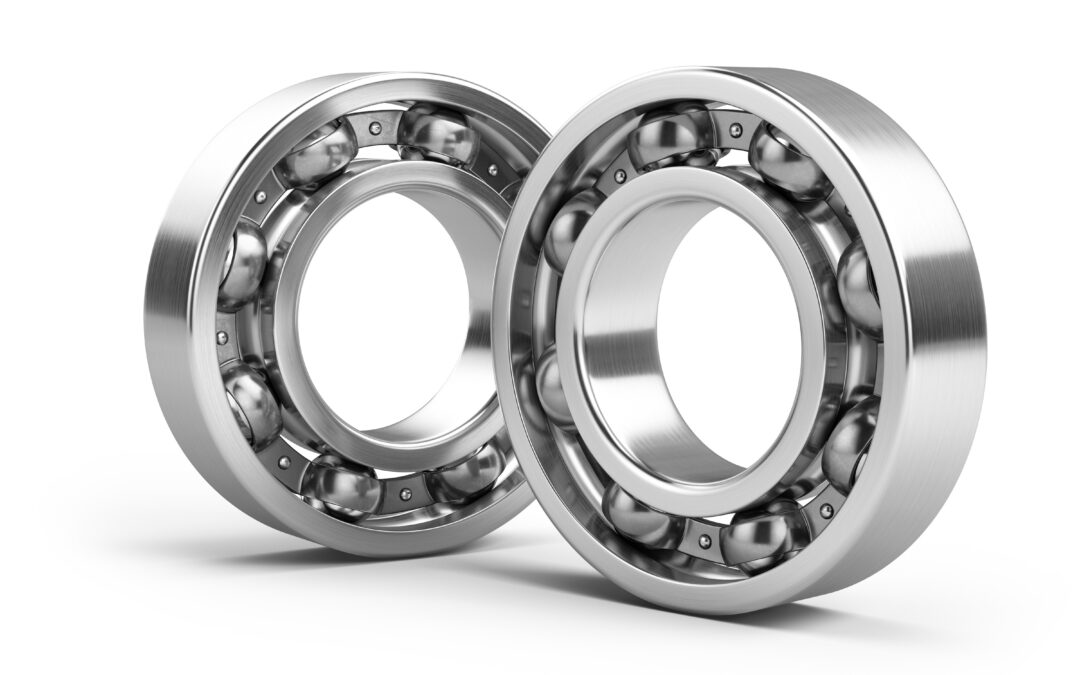If you are old enough to remember vintage roller skates, you probably recall the metal ball bearings inside each of the skate wheels. These bearings did more than make a lot of noise, they helped the skate wheels to move evenly. Like the skate bearings, your vehicle has wheel bearings that are essential components of your vehicle’s wheel assembly. These bearings allow the wheels to spin smoothly and reduce friction. When there are issues with the bearings, it can impact your driving performance and even your fuel savings. In this month’s blog post, we discuss wheel bearings and the common issues you may experience with them.
What are Wheel Bearings?
Wheel bearings are small steel balls that are contained within a metal ring, referred to as a race. The bearings typically sit inside each of the wheel hubs, which connect the wheel to the axle.
There are several functions that wheel bearings provide to your vehicle, including:
- Helping the wheels to rotate freely by reducing the friction caused by the movement.
- Supporting the weight of the vehicle by transferring the load from the axle to the wheel.
- Helping with the stability of the wheel when it is in motion by preventing wobbling or vibration.
Overall, the wheel bearings play a role in maintaining your vehicle’s performance and handling, as well as your fuel efficiency.
What Happens When Wheel Bearings Fail?
Wheel bearings are not immune to wear and tear. Over time, they can become damaged due to various factors, such as heat, water, debris, corrosion, or lack of lubrication. If left unaddressed, this wear and tear to the wheel bearings can impact your vehicle’s performance and safety.
Some of the common signs of a bad wheel bearing are:
- A loud grinding or humming noise that gets louder as you accelerate or turn. This noise is caused by the metal-to-metal contact between the damaged bearing and the race.
- A vibration or wobble in the steering wheel or the wheel itself. This indicates that the bearing is loose or unevenly worn.
- Uneven tire wear or damage. This is a result of the wheel being out of alignment or unstable due to a faulty bearing.
- ABS (anti-lock braking system) malfunction or warning light. This is because some wheel bearings have sensors that communicate with the ABS system.
If you notice any of these symptoms, you should have your wheel bearings checked and replaced as soon as possible. Driving with a bad wheel bearing can cause further damage to your suspension, brakes, and other components.
Preventative Maintenance
To keep your wheel bearings from failure and damage to other components of the vehicle, there are a few preventative tasks you can implement in your maintenance routine.
- Have the wheel bearings checked regularly for any signs of wear, damage, or contamination. This is typically done by lifting the vehicle and spinning each wheel by hand. If there is any sign of noise or resistance, there may be a problem with a bearing.
- Have the wheel bearings lubricated according to your vehicle manufacturer’s recommendations. This will help reduce friction and heat and extend the life of the wheel bearings.
- Avoid driving through deep water or mud, as this can cause water or debris to enter the wheel bearings and damage them.
- Have the wheel bearings replaced when they reach their service limit or show signs of failure. Service professionals will not reuse or repair any worn bearings.
Wheel bearings are vital parts of your vehicle that ensure a smooth and comfortable ride. By knowing what they are, how they work, and how to take care of them, you can keep them in good condition and avoid costly repairs and accidents. If you have concerns about your wheel bearings, contact the service professionals at Campus Repair to schedule an inspection and/or repairs.

